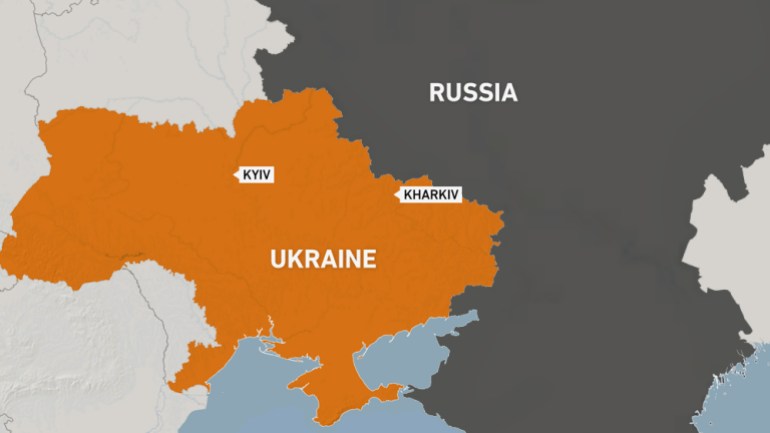
Kharkiv, Ukraine – Mykola Levchencko, a 45-year-old software engineer, is always prepared for an invasion; next to his work desk is a full set of body armour and a custom-made rifle.
A local to Kharkiv, Ukraine’s second-largest city, Levchencko is a product of his environment in many ways.
The city is a thriving technology hub, with more than 45,000 resident IT specialists. But with only 40km (25 miles) to the border with Russia, it faces the prospect of being drawn into the ongoing conflict.
In recent weeks tensions have reached a fever pitch, with Russia amassing more than 100,000 troops along Ukraine’s border, prompting fears that the country is facing a potential invasion, with Kharkiv, as some experts suggest, a potential primary target.
Olga Shapoval is the head of Kharkiv IT Cluster, an NGO located in a trendy concerted loft space overlooking the city. The NGO has supported the city’s tech industry since 2015.
“We now call Kharkiv the Silicon Valley of Ukraine”, she said, having seen the industry double in size over the past seven years.
Since 2014, she has learned to live with the continual threat of an invasion, but now with increased tensions, she says many professionals are beginning to work on a “Plan B”.

The success of the city’s IT industry can be credited to many factors, including its long history as an engineering hub, a wealth of education and research facilities, and the low cost of living, making it an attractive investment for international companies looking for young talent.
It is also a result of concerted efforts by the organisations such as the Kharkiv IT Cluster to rebuild trust in global companies spooked by the events of 2014 when the conflict in Eastern Ukraine began.
In the centre of Kharkiv, the atmosphere is calm.
Families skate in a temporary ice rink, and international students mingle in the countless cafés that line the main square.

Satyan, 23 and Mukul, 21 students from India, describe their mood as “chilled” but are aware of the increased tension.
In the event of an invasion, most international IT specialists and students would be able to relocate.
But for locals like Levchencko, this is not an option.
“Our families are very nervous,” he said. “We don’t have the financial ability to relocate with our children.”
The survival of the city’s IT sector is also vital for the country. Shapoval estimates that about 200,000 local jobs depend on the IT industry in Kharkiv and it is a major source of tax revenue for Ukraine. The local industry also supports much of the military’s IT and cybersecurity infrastructure.

According to sources in the local, territorial forces, a potential invasion would most likely see Russian troops surrounding the city at first. This leaves the prospect of a long-protracted siege, which could scare away the countless international education, finance, and healthcare companies in Kharkiv.
Levchencko is also an army reservist, training every week with other locals aged between 30 and 65 in preparation to defend his city in the face of a potential attack.
Recently, he has seen many of his fellow IT professionals join his unit. He estimates that it would only take him five minutes to be ready to fight on any given working day.








